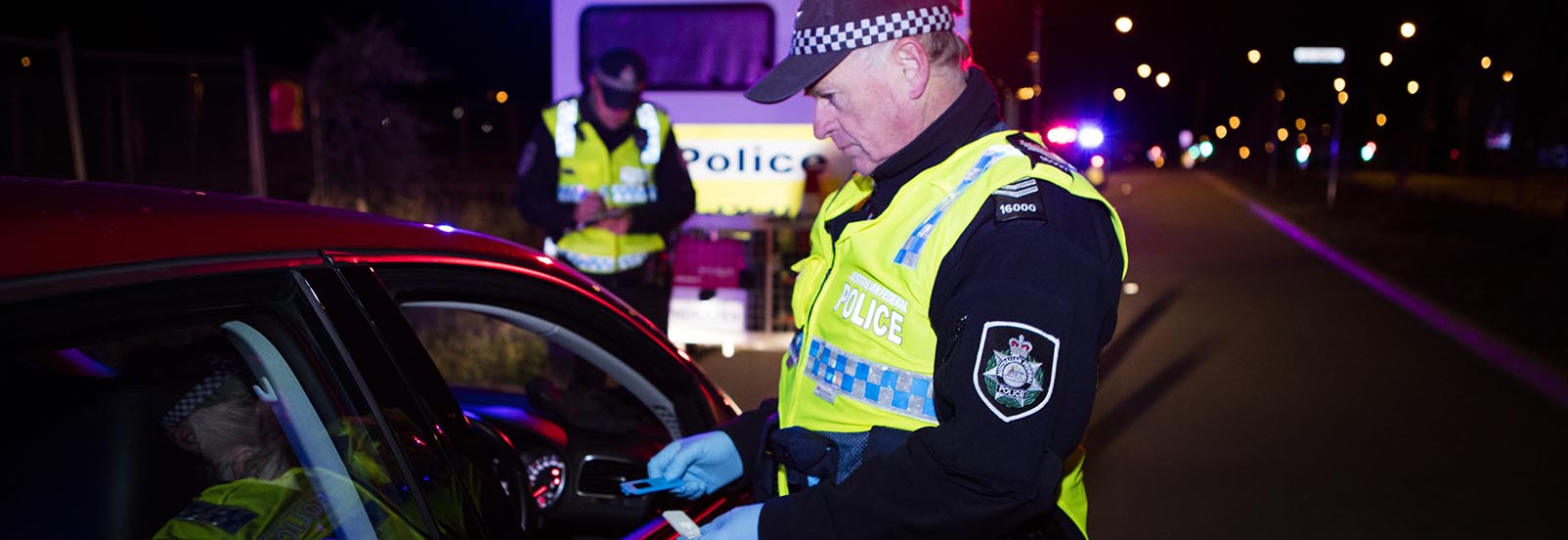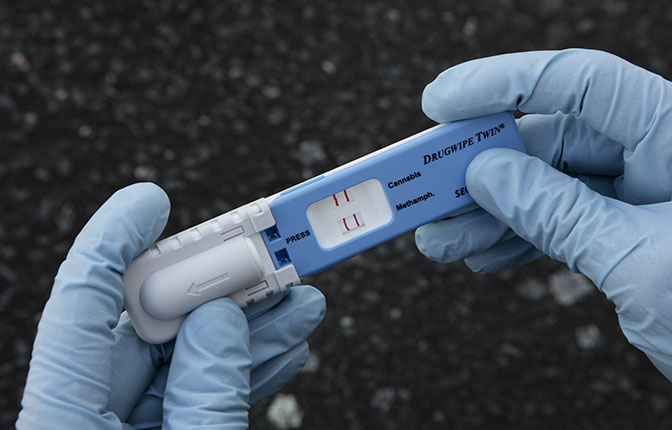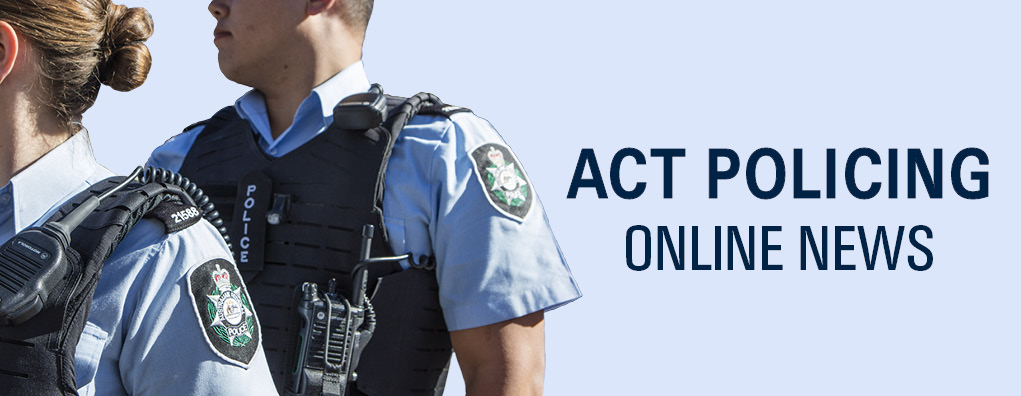Alcohol and drug impaired driving

Alcohol and drug impaired drivers pose the highest risk on our roads. Removing these drivers reduces the potential for serious injury or fatal collisions.
Roadside alcohol or drug screening can happen anywhere any time on any road by an unmarked police vehicle. If you drive under the influence of drugs or alcohol, you will be caught.
Alcohol
- Know your limits
- What is a standard drink?
- Random Breath Test screening process
- Penalties for drink driving
Drugs
Alcohol
Know your limits
Alcohol affects people in different ways, the more alcohol you consume the greater the impact on your driving ability. In the ACT:
- drivers who hold a full licence are allowed a prescribed blood alcohol concentration limit of under 0.05 alcohol content.
- special, probationary, international (from non-recognised countries), provisional and learner licence holders, as well as driver trainers, are subject to a zero blood alcohol concentration level.
- drivers of vehicles with a Gross Vehicle Mass or Gross Combined Mass of more than 15t, or carrying dangerous goods, are special drivers and are subject to a zero blood alcohol concentration level.
Visit Access Canberra to determine what level licence you hold.
What is a standard drink?
In Australia, a standard drink refers to 10 grams of alcohol. On average, this is how much the human body can process in one hour.
DrinkWise Australia and the Department of Health’s website provide information on how alcohol affects you and standard drinks.
Even with a guide, it can be hard to track how much alcohol you have consumed. The safest option is; if you’re drinking, don’t drive.
Roadside breath test screening process
- If the reading from a screening instrument indicates the driver of the vehicle may be over the prescribed concentration of alcohol, the driver is conveyed to a police station for breath analysis.
- At the police station, an authorised breath analysis operator requests the driver to supply a further breath sample for analysis by the Drager breath analysis instrument. The instrument is recognised by the ACT courts as providing an accurate and lawful reading.
- If the analysis of the sample shows the person is at or over the limit, he or she can either be arrested or summoned to appear in court at a later date.
It is an offence to fail or refuse to supply a sample of breath for screening or analysis.
ACT Policing is required to make available a list of police officers authorised to conduct breath analysis (used in the testing for the presence of alcohol) or oral fluid analysis (used in the testing for the presence of drugs) in the ACT.
What are the penalties for drink driving?
Offences for drink driving vary depending on the alcohol concentration level recorded and the concentration limit which applies to the driver. A first offence can lead to a fine of up to $2400, nine months imprisonment, or both. First time offenders may also have their driver’s licence disqualified for up to three years.
Drivers that repeatedly offend, face a fine of up to $3200, 12 months imprisonment, or both. Repeat offenders may have their driver’s licence disqualified for up to five years.
Police may also impose an Immediate Suspension Notice, which suspends the driver’s licence for up to 90 days.
Drug Driving
Unlike alcohol, any trace of illicit drugs in your system whilst driving a motor vehicle is illegal. ACT Policing commenced Random Roadside Drug Testing (RRDT) in May 2011. These drug tests test for cannabis, methylamphetamine (speed and ice) and MDMA (ecstasy). Drug testing can take place anywhere, anytime – don’t risk it.
Drug driving tests
The testing only relates to the ‘presence’ of a drug in your system, there is no limit like drink driving. RRDT is a three step process before the driver could be charged with an offence. The first two steps are undertaken by police on the roadside. 
First an oral test is used, followed immediately by a ‘preliminary oral fluid analysis’ using an instrument called a Drug Detection System.
If the person is unable to provide a saliva swab, a blood test may be used. A third ‘confirmative’ positive laboratory test is required before a driver is charged; this is conducted by the ACT Government Analytical Laboratory (ACTGAL).
Penalties for drug driving
Drug drivers will be required to appear before the court, similar to those who ‘drink and drive’.
An offending driver can face a loss of their driver’s license for a period specified by the court, be given a fine as well as imprisonment for repeat offenders.
For more information on drug driving visit the City Services Website.






